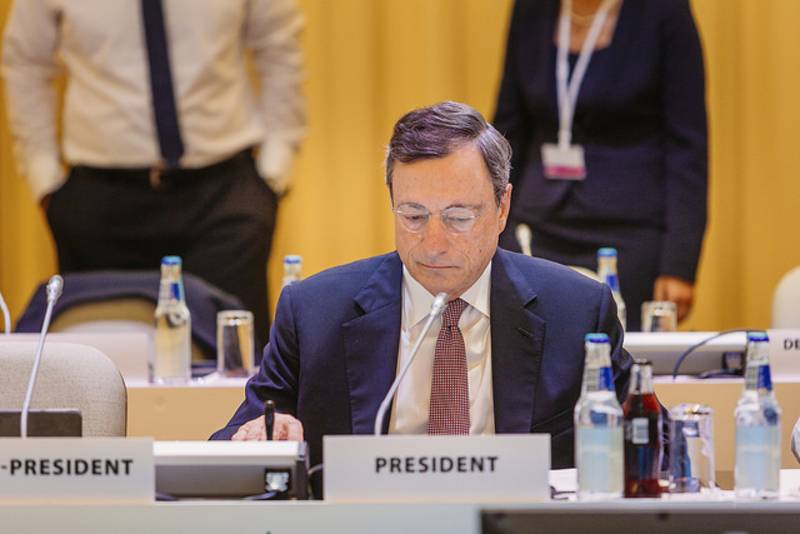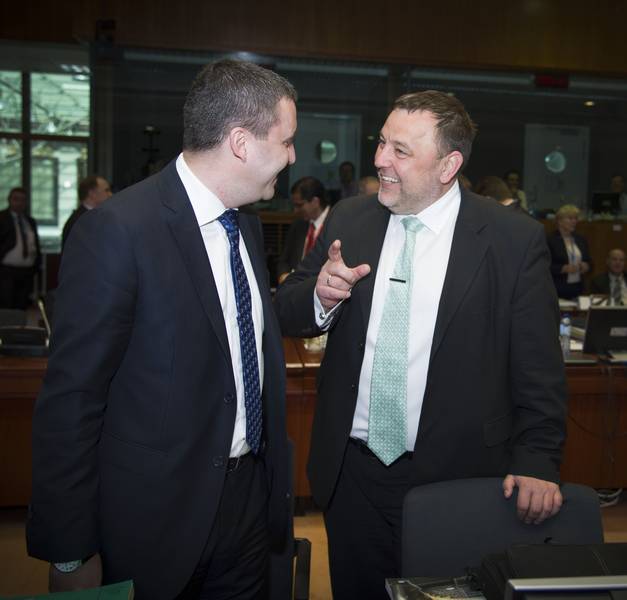The state is penetrating deeper into the financial markets in the US
Adelina Marini, June 17, 2009
 A great increase of the power of the Federal Reserve as well as stronger and more consistent oversight of the largest financial firms. This is one of the 5 pillars in the long expected plan of the Obama administration to increase the state interference in private markets. The plan is to be presented officially today. But the "Washington post" has a copy of the blueprint of 85 pages, which proposes a really serious reorganisation of the financial regulation in the US. Many of the ideas, by the way, could be found in the Jose Manuel Barroso's plan for pan-European regulation.
A great increase of the power of the Federal Reserve as well as stronger and more consistent oversight of the largest financial firms. This is one of the 5 pillars in the long expected plan of the Obama administration to increase the state interference in private markets. The plan is to be presented officially today. But the "Washington post" has a copy of the blueprint of 85 pages, which proposes a really serious reorganisation of the financial regulation in the US. Many of the ideas, by the way, could be found in the Jose Manuel Barroso's plan for pan-European regulation.
The second of the 5 point in the plan is Congress to authorize the government for the first time to dismantle large firms that fall into trouble, avoiding a chaotic collapse that could disrupt the economy. Given that the US is a federation and many of the legislation is being implemented on a state level and not federal, the third point is very interesting - the blueprint proposes a federal oversight into the darkest corners of the financial markets, imposing new rules on trading in complex derivatives and securities built from mortgage loans.
As the EU, the US also plans to create entirely new agency to protect the consumers of mortgages, credit cards and other financial products. "Consumers should have clear disclosure  regarding the consequences of their financial decisions," the plan states, according to the WP. A very interesting fact is that this agency would have the authority to change the way that loans are sold. One idea highlighted by the administration is to require that lenders offer all customers standard "plain vanilla" loans, such as 30-year, fixed-rate mortgages with streamlined pricing. The sale of loans with more complicated terms would be subjected to greater scrutiny by the agency. It could even require that customers who take more complicated loans sign a waiver, is written in the plan.
regarding the consequences of their financial decisions," the plan states, according to the WP. A very interesting fact is that this agency would have the authority to change the way that loans are sold. One idea highlighted by the administration is to require that lenders offer all customers standard "plain vanilla" loans, such as 30-year, fixed-rate mortgages with streamlined pricing. The sale of loans with more complicated terms would be subjected to greater scrutiny by the agency. It could even require that customers who take more complicated loans sign a waiver, is written in the plan.
The agency, which would probably become a very influential one, according to the blueprint of Barack Obama, will have a mandate to increase the availability of financial products in lower-income communities and other underserved areas, which requires banks to make loans everywhere that they collect deposits.
To carry out these responsibilities, the agency would be granted the same powers as the regulators charged with keeping banks healthy, including the ability to write rules, conduct examinations, and impose fines and other penalties. Consumer advocates say the current financial crisis is ample evidence of the need for a new approach, the WP says.
Unlike the EU where a separate regulator is planned for the insurance market, this job in the US is trusted on the Treasury department, according to the blueprint and it will have an oversight of the insurance market. But is possible that the biggest insurance companies to fall under the scrutiny of the Federal Reserve in its new role as a systemic risk regulator.
According to the WP the Senate is not expected to begin work on the reforms until fall. Until then the temperature of the markets after the announcement of the blueprint would be constantly measured.
 And tomorrow is expected the EU leaders, among which the Bulgarian prime minister Sergey Stanishev, to discuss the European plan for financial regulation which meets much more resistance than the American one. The reason for this is simple - the EU is not the US. As the euinside wrote many times, the Commission plan, based upon the report of the French financial expert Jacques de Larosiere, suggests the creation of 2 regulation pillars: European Systemic Risk Council (ESRC) and a European System of Financial Supervisors (ESFS).
And tomorrow is expected the EU leaders, among which the Bulgarian prime minister Sergey Stanishev, to discuss the European plan for financial regulation which meets much more resistance than the American one. The reason for this is simple - the EU is not the US. As the euinside wrote many times, the Commission plan, based upon the report of the French financial expert Jacques de Larosiere, suggests the creation of 2 regulation pillars: European Systemic Risk Council (ESRC) and a European System of Financial Supervisors (ESFS).
Bulgaria, generally, has supported the proposal of the Commission. On Friday the prime minister will give a press conference and then it might become more clear what the position of our country is and how the proposal is being accepted by the rest of the member states. More on the issue you could read on the links below this article.
A little bit later on euinside you can read the main proposals of the Bulgarian parties in their efforts to curb the crisis.
 Mario Draghi | © ECB
Mario Draghi | © ECB Vladislav Goranov, Sven Sester | © Council of the EU
Vladislav Goranov, Sven Sester | © Council of the EU Tsakalotos, Djisselbloem, Gramegna | © Council of the EU
Tsakalotos, Djisselbloem, Gramegna | © Council of the EU